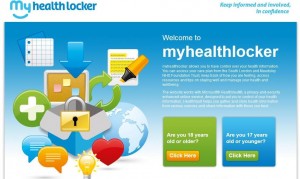At the Department of Health we take the process of engagement very seriously. Our approach to the development of any policy is rooted in dialogue with our stakeholders, including of course service users and carers. Recent examples include the Children and Young People’s Mental Health Taskforce, the Care and Support reforms and the current consultation on the rights of people with learning disabilities. We don’t always get it right but it is part of our value system and our culture. And I am proud of that.

Increasingly, we have been using digital platforms to maximise the opportunities for engagement, allowing a degree of access and consultation unprecedented in the world of policy making and implementation. But while we are undoubtedly becoming more agile in the virtual space we mustn’t lose sight of those unable or unwilling to engage in this way. More than that, as strategic leaders, commissioners and providers of care and support services, we need to address how digital tools and services can be better deployed for the use and benefit of our citizens. As Baroness Martha Lane-Fox recently said at a Department of Health/Social Care Institute of Excellence event, “Public leaders should not equate taking an IPad into a meeting as thinking that they understand the internet.”
At the end of last year, I was asked if I would become a Whitehall champion for greater digital inclusion. I hope that those of you who read my blog regularly or follow me on twitter won’t be surprised that I gladly accepted the invitation. In my view, being an advocate for greater digital engagement sits well with the sector’s broader themes of integration and person centred care, where improving access, choice and our capacity to listen and engage with service users is paramount. Set against the BBC research which reveals that one in five of the UK population lack the digital skills to fully exploit internet based services and you can see why I am keen to raise awareness and help more people access the information and support they need.
In recent times there has been a proliferation of online services targeted at end users and the care and support networks with which they interact. Take a look at myhealthlocker, a client-focused NHS England website which allows service users to take an active role in their recovery and wellbeing, giving them access to care plans at any time and resources and tips for staying well. MyLife and Quickheart are further examples of online self-serve resources, helping people manage their self-assessments, support planning and the way they engage with local councils to discuss, query or even challenge decisions about their care.
The success of the above services though is predicated on having the knowledge and confidence to use them. It’s no coincidence I’m publishing this blog in the week the Government has launched Digital Friends – a new initiative encouraging people to approach colleagues, friends or family members and help them get the most out of the internet. See my Government Digital Service post where I explain the context of this endeavour in more detail. I’m sure, even within my own organisation, and many of our sector partners' organisations, there are individuals who would benefit from giving their digital skills an upgrade. If large corporations like Barclays and Argos can do it then so can we. Indeed, the Cabinet Office is already running a pilot scheme for its staff and the challenge has now been extended to the whole of the Civil Service. It is a challenge I welcome.
Let me share a couple of killer statistics* with you. 90 percent of the social care workforce believes they have good basic digital skills, but only 52 percent of their managers believe this is the case. Who is right? If it’s the workforce, we are missing out big time, if it’s the managers then we have a lot of denial or at least miscomprehension going on. Either way, only 50 percent of social care staff make use of digital technology in their relationships with their clients.
I believe we in the care and support sector have a particular responsibility to expand digital inclusion, especially among traditionally hard to reach groups such as older people, offenders and those living with learning disabilities and other cognitive issues. For example, if we’re commissioning third parties to develop user focused dementia apps and social networks we should at least know how they work and be able to coach others to cascade that knowledge. Even if the end user, or their friends, family and carers, never go near a digital platform, that doesn’t mean the quality of the services they receive can’t be improved by the way we work together to develop and deploy them.
I would very much welcome your views on this topic. Please use the comment function at the bottom of this post to share your ideas and experiences or feel free to continue the conversation with me on twitter: @RouseJonDGDH.
Together, let’s prove a digital nation can be a healthier nation too.

2 comments
Comment by Dawn Galletly posted on
Good article. I like the Digital Friends idea. Don't forget the many ex-Civil Servants who have battled for years to provide Corporate Systems that are not "bleeding edge", but which did provide leading process/user oriented systems, often with little buy in re the importance of the real user perspective. I must equally thank the Digital Health team for providing Hilda with a voice re Dementia Digital Challenge. It would be great if we could walk and show good stuff from our NW England communities. Thanks; we have great resources out here; help us spread confidence that you can talk to people in Whitehall.
Comment by Mark Reynolds posted on
I think digital inclusion is a really important area for health and care. NHS Choices has 50 million visits per annum meaning that a large part of the population benefits from online health advice. There's still a large part of society that aren't able to access this information and so are disadvantaged in their care. This isn't just an IT issue..it's a public health one.